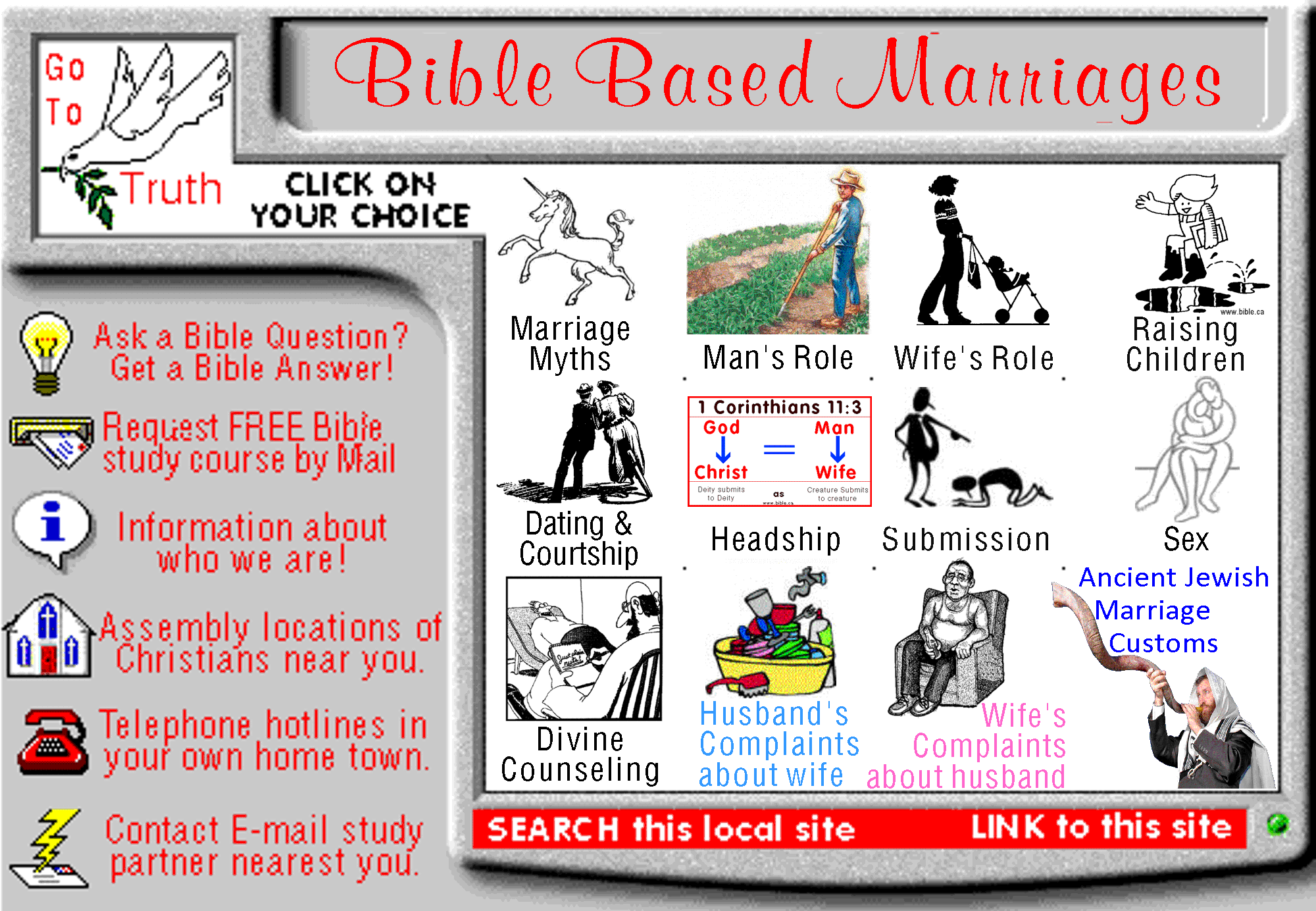
Since marriage is a condition of life that nine out of ten people enter, we should know what Jesus teaches on marriage. Since the teaching on this is very specific it indicates that Jesus regarded it as highly important. The number of divorces is increasing in our society and since the majority of divorced persons do remarry, it is also important that Christian people know the teaching of the scriptures concerning divorce and remarriage. Again, since our society is made up of so many divorced people who will eventually remarry, young people should be alerted to the problem by their parents and teachers so they will know how to face it in a Christian way before they allow themselves to become so emotionally involved that it will be difficult for them to face the problem intelligently.
The teachings of Jesus on this subject may be found in Matthew 5:31,32, and Matthew 19:3-9. These passages should be carefully read in connection with this discussion. Jesus went back to the beginning and based marriage on God's original intention in creation. God created man, male and female, and stated that man should leave his father and mother and cleave unto his wife, and the two should become one flesh. Marriage is the permanent union of man and woman as husband and wife, as long as they both shall live upon the earth. It is not merely a physical connection, but a spiritual companionship in which each seeks to promote the other's highest well being through mutual forbearance and love and prayer. Each seeks the other's highest well-being, rather than his own.
Considered as a contract, marriage is an agreement of man and woman to live together as husband and wife. There is, however, a difference between the marriage contract and all other human contracts. The terms of this contract are not to be drawn up by contracting parties as in a business. The terms of the marriage contract have been drawn up by God, who is the creator of man and the author of the institution of marriage. This being true, those entering the marriage relationship should realize that they are obligated to accept the contractual terms as God, himself, has announced them. This contract, therefore, is one that God has arranged and it cannot be dissolved merely by the will of either one or the will of both parties to the contract. Not even a decree from the state can release the Christian from his obligation to do the Lord's will. This means that marriage is so permanent and so highly serious that all persons entering it should do so soberly, advisedly, after careful thought and consideration, and in the fear of God. Both husband and wife rest under the obligation of learning what their respective duties and responsibilities are, as these duties and responsibilities are revealed in the New Testament. It is only as they accept these duties and responsibilities seriously and seek to fulfill them to the best of their ability that they can attain the highest happiness in marriage and build the most successful home. It is because God intended marriage to be permanent that divorce becomes such a serious problem. Even though one of the contracting parties never remarries, he must still face the responsibility involved in separating from his partner and failing to fulfill his marriage vows.
But the question arises, "Is it ever right for one of the marriage partners to divorce the other and to remarry?". The teachings of Jesus on this point is clear. "Whosoever shall put away his wife, except it be for fornication, and shall marry another, committeth adultery. And whosoever marrieth her which is put away doth commit adultery." (Matthew 19:9). A careful examination of this passage indicates a number of things. First, adultery must be the actual cause for the putting away, or separation. Sometimes husband and wife separate and adultery results from this separation, but it is not the cause. Certainly Jesus would not allow such to be used as the basis for remarriage. Where adultery occurs as a result of neglect to fulfill one's marriage obligation, it can never be used for the grounds for remarriage on the part of the person who has not committed adultery. This simply points up again the seriousness with which husband and wife should seek to fulfill all of their marital obligations.
In the second place, the adultery claimed as a basis for remarriage on the part of the innocent partner must have occurred without fault on the part of the person claiming the right to remarry. No one who faults in the marriage relationship constituting a contributing cause to the other person's unfaithfulness can claim to be free in such a situation. Another factor that should be considered is this: where adultery has occurred and been forgiven, the forgiving partner should never again present the forgiven offense as the basis for divorce and remarriage. With these exceptions excluded, the teaching of Jesus does allow remarriage of the innocent partner in a marriage broken by adultery. As one reviews the teaching of Jesus on the subject, he becomes aware of the greatest discrepancy between what is considered satisfactory from the point of view of the world and the teaching of Jesus on this subject. Christians should remember they are under obligation to accept the teaching of Christ on all matters and should not accept a compromise between His teaching and the prevailing point of view of society, regardless of who may endorse such a view.